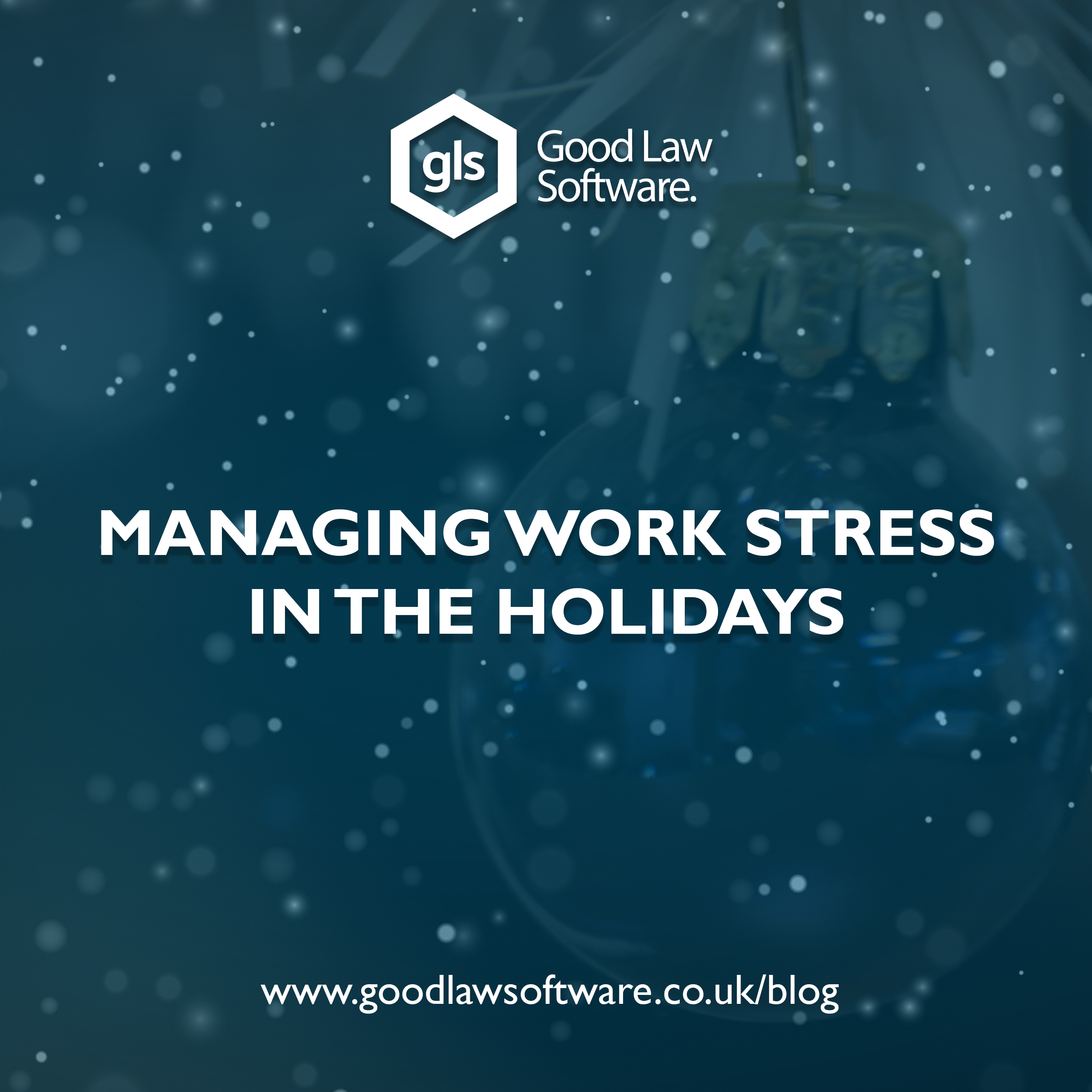Managing Work Stress in the Holidays

Written by Maryam Khan
Blogger

A guide to managing work tasks during the festivities
Managing stress at work during the holidays can be difficult for any employer. Employees at your company not only have job responsibilities to attend to, but they may also be dealing with family visits, end-of-the-year holiday gift buying, event scheduling and so on. Business owners face a greater challenge because they must deal with work and holiday stress, as well as an entire workforce. Whatever the problem, the holidays have the potential to cause stress and anxiety, which can, among other things, spill over into the workplace and lead to a decrease in productivity. It is critical for managers and supervisors, as well as human resource professionals, to understand how to identify and address issues arising from employees’ holiday stress at work.
Detecting Potential Holiday Stressors
Some key indicators that your employees may be experiencing higher-than-normal holiday stress or anxiety, particularly during this busy time of year, include:
Workplace performance and productivity levels have shifted
Performance that is deteriorating or inconsistent
Increased work time and absence of holiday planning/use
A lack of motivation or dedication
Poor co-worker/employee relationships
Arriving to work or digitally logging in to work late
Early departure
Meeting deadlines, managing employee schedules amid time-off requests, and payroll and benefits planning during this period can create a perfect storm of holiday stress at work for many decision-makers. And end-of-year office stress can not only affect you, but it can also spread to your team and potentially affect their productivity.
Some triggers or general causes of stress in the workplace can be attributed to the following factors:
Impossible to achieve goals and deadlines
Unsupportive coworkers/managers or a lack of work friends
Hours that are excessively long, antisocial or inflexible
Inadequate support or supervision
Overwhelming responsibilities or domestic difficulties
Managing Employees During the Holidays
Managers have a critical obligation to pay close attention to the potential toll that year-end holidays can take on employees. Keeping the following in mind when tempers flare or other incidents of workplace conflict occur are useful to know:
Recognising that one will not have all of the answers
Being open to constructive criticism and remaining neutral when necessary
Holding one accountable and following through on promises
Being a deliberate listener and providing feedback in a timely manner
Perhaps most importantly, communicating to the team that the company recognises that everyone has obligations and responsibilities outside of the workplace, is one of the most efficient means of communication. While business obligations must always be met, recognising that increased stress levels can make this goal more difficult at times and that managers are available to assist is essential.
As the deadline approaches, add some flexibility. This may seem counterintuitive as you rush to meet a holiday deadline, but according to a study by Accountemps, 44% of surveyed executives experience a drop in productivity the week before the holidays. Holiday burnout is real, but it is avoidable with a little flexibility. In fact, 54% of those polled said that flexible hours would help reduce workplace stress, and 26% said they would like to telecommute on occasion. [1]
Feeling overwhelmed at work
Often, the first point of contact is to discuss your concerns informally with a line manager or HR personnel. Even though this is an informal stage, it is prudent to confirm your conversation in writing to protect yourself in the event that your employer later claims that there was no awareness of the issue. In fact, if it can be demonstrated that your employer was not made aware of your stress, they may later mount a successful defense.
Following this conversation, your employer could take practical steps such as reviewing your job description to ensure you are doing the right amount of work, supporting you with additional training, holding regular meetings or possibly arranging flexible working arrangements.
If professional assistance is required, seek it. Despite the best efforts being made, one may find themselves feeling sad or anxious all the time, plagued by physical complaints, unable to sleep, irritable and unable to face routine chores. If these feelings persist, consulting a doctor or a mental health professional is necessary.
Set aside some time for yourself. Spending just 20 minutes alone, without distractions, may be enough to recharge your batteries and allow you to handle everything else. Find something that allows you to unwind by clearing your mind, slowing your breathing, and restoring your inner peace.
When individual employees exhibit signs of a more serious problem, it is crucial to intervene as soon as possible. While many employees may exhibit signs of temporary stress, long-term issues should be addressed as soon as possible for the employee’s health and safety.
Managers should endeavour to include HR in the loop and document all interactions with the employee regarding a more serious issue to ensure that all appropriate guidelines are followed. Out of respect for the employee, these discussions should be held in private and they should be compassionate and understanding, taking into account the root cause of the issue at hand.
Holiday Stress Reliving Resources
According to a 2014 Kaiser Family Foundation survey, 79 percent of all employers with 200 or more employees provide an Employee Assistance Programme, but many employees may be unaware of this service. Managers, in addition to HR, must be aware of the programme in order to recommend it to employees as needed.[2]
To raise awareness, HR teams can provide materials about the EAP to managers and employees, especially during high-stress seasons, so they have the information handy if they want to use this service. An EAP is generally provided at no cost to employees, making it a free and readily available resource to assist them in addressing concerns during the holidays and throughout the year.
Conclusion
With the holiday season officially in full swing, many employees may be feeling the strain of the season. Employees can face a variety of challenges at this time of year, ranging from stress over having too much to do in too little time to the potential effects of more serious conditions. Employers can play an important role in ensuring employees have support and are aware of resources that can help them during this time and throughout the year.
References
[1] How To Manage Your Stress During The Holidays, Ashley Stahl, Dec 2018
https://www.forbes.com/sites/ashleystahl/2018/12/18/how-to-manage-your-stress-during-the-holidays/
[2] Addressing Holiday Stress and its Impact at Work, Norbert Berta Alicia, https://www.corporatewellnessmagazine.com/article/addressing-holiday-stress-impact-work








